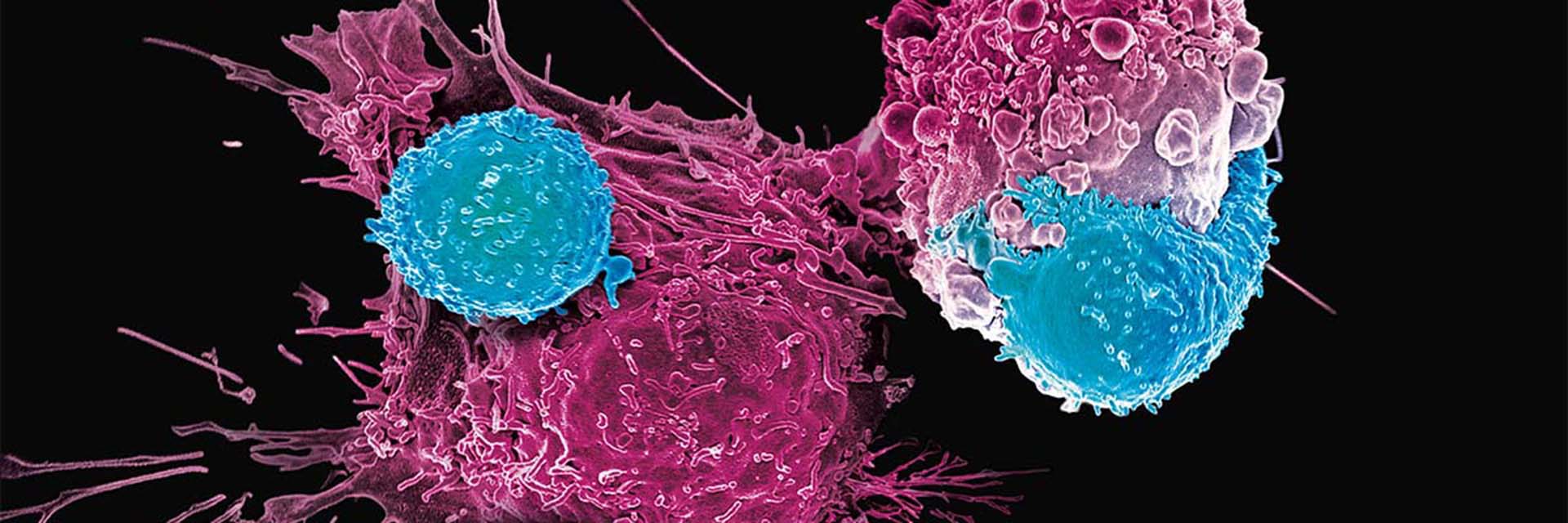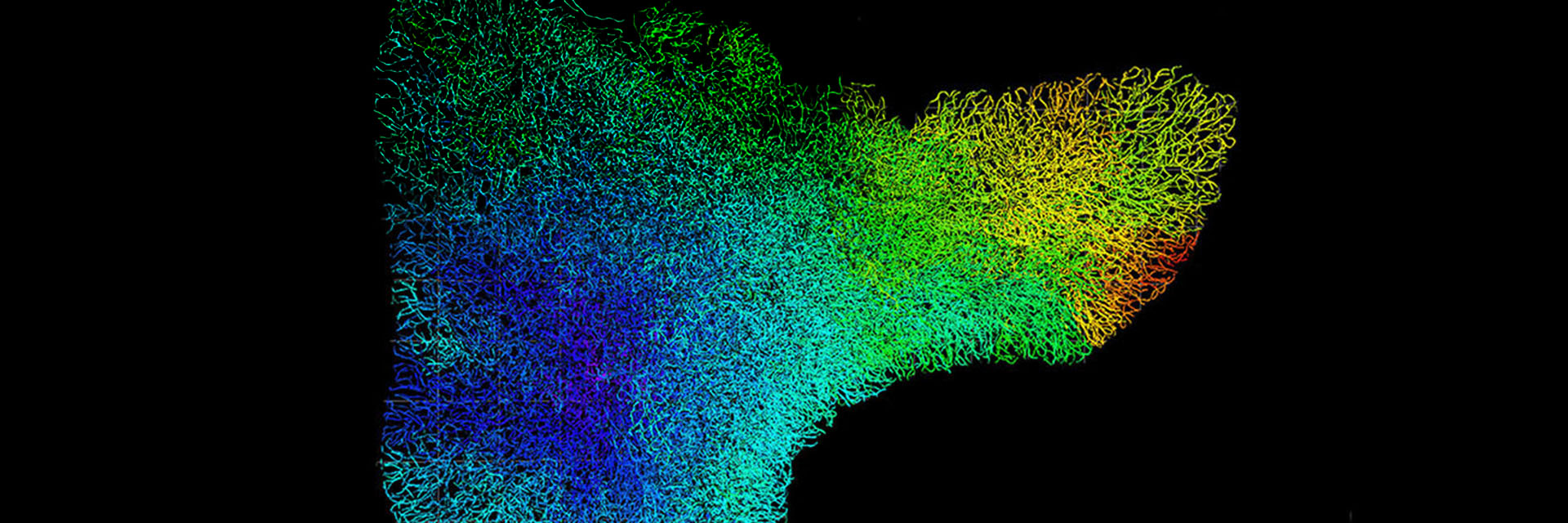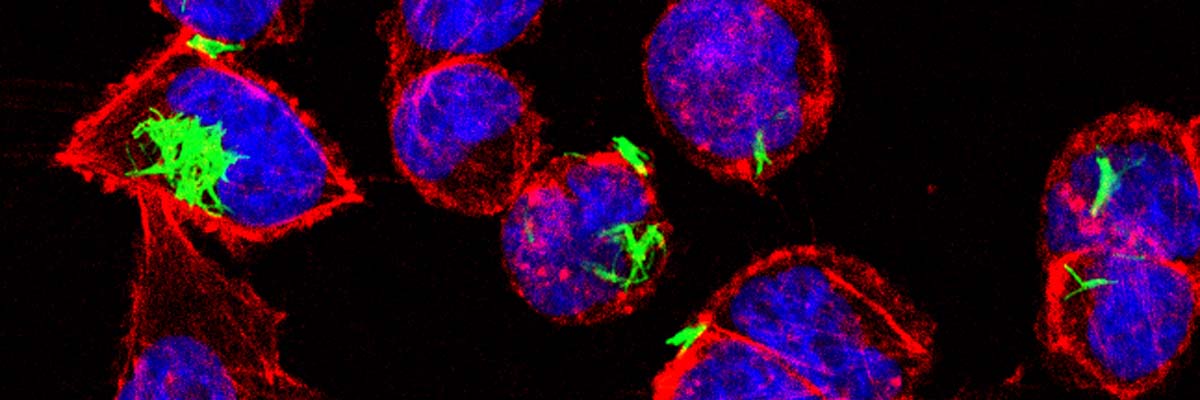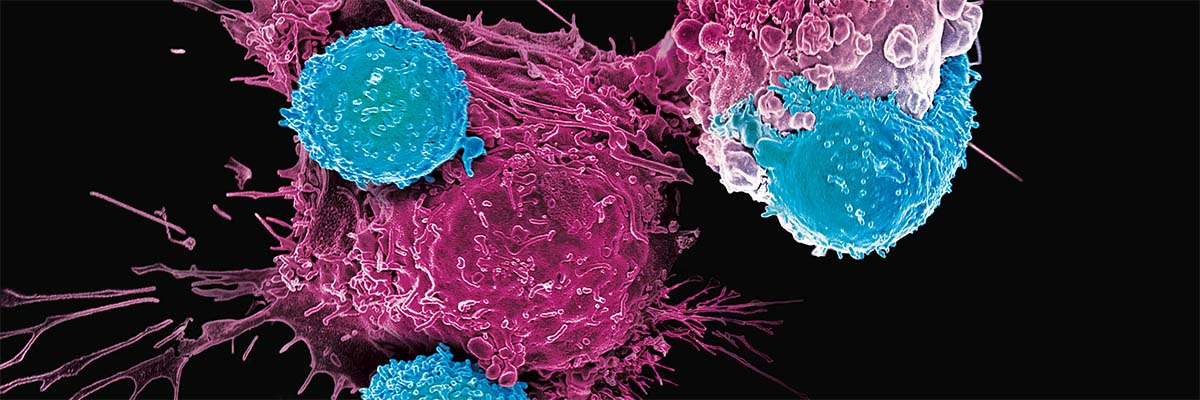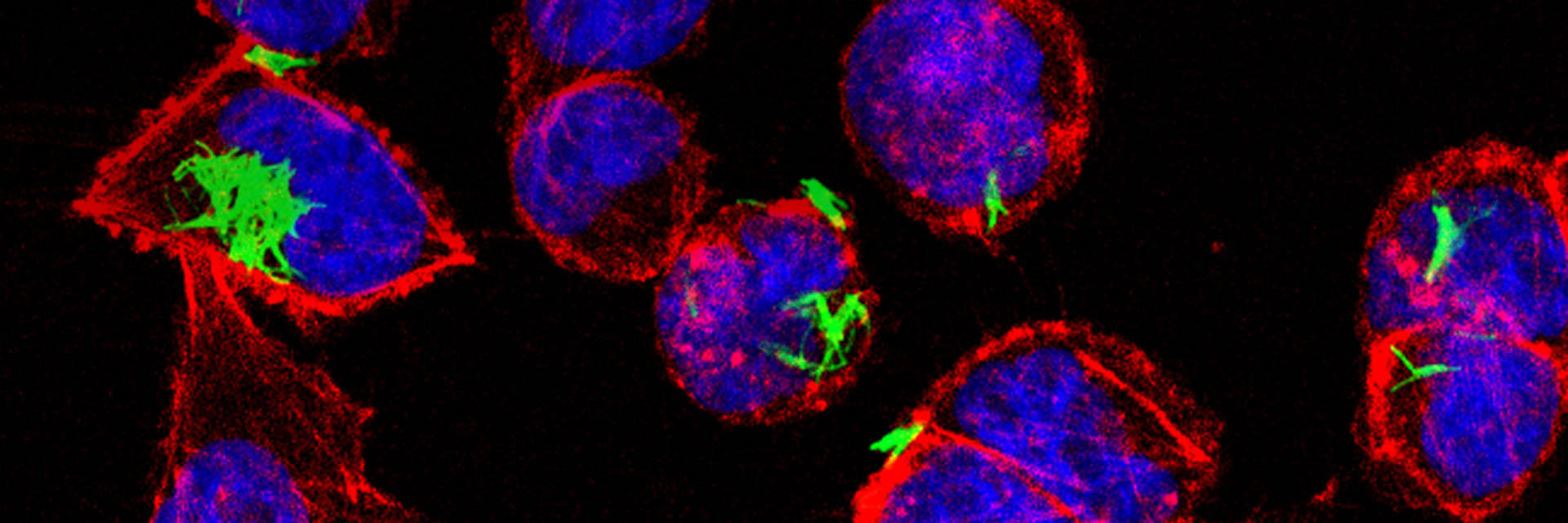
Immunology Program at Sloan Kettering Institute
Immunology is one of the most fruitful areas of contemporary biomedical science. Insights from immunology have infused medicine with a renewed sense of optimism about the treatment of many stubborn diseases, such as cancer and autoimmunity.
SKI’s Immunology Program is broad in scope and comprises both basic and translational research. Our scientists are world leaders in the study of innate and adaptive immunity, host-microbiota interactions, and mechanisms of immune regulation.
A strength of the program is the ability to translate laboratory findings into effective clinical applications. Scientists from our program have played a central role in the development of several types of immunotherapy that are currently transforming cancer care, including checkpoint blockade and CAR T cell therapy.
Read more
Research in the Immunology Program focuses on several areas:
- cell signaling
- development in the thymus
- T cell selection
- antigen processing and presentation
- genetic approaches to transplantation and active immunization
- cancer immunology
- infection and immunity
- transplantation immunology
- adoptive cellular therapies including CAR therapy

Immunology Program Chair Sasha Rudensky with frequent collaborator Dana Pe’er, Chair of the Computational & Systems Biology Program.
Our Faculty
-
Alexander Rudensky, PhD
Chair, Immunology Program
Immunology Program Chair Alexander Rudensky focuses on immunological tolerance and the differentiation and function of T cells. -
Jayanta Chaudhuri, PhD
Immunologist Jayanta Chaudhuri studies the mechanisms of immunoglobulin gene diversification. -
Gretchen Diehl, PhD
The Diehl lab studies how the microbiota and other exogenous factors regulate development and function of the intestinal immune system. -
Frederic Geissmann, MD, PhD
My research is focused on cellular and molecular mechanisms that control the differentiation, maintenance, and physiological functions of macrophages and monocytes and their roles in tissue homeostasis and disease processes. -
Alexander Gitlin, MD, PhD
The Gitlin Lab studies the molecular and cellular mechanisms underlying inflammatory cell signaling in health and disease. -
Michael S. Glickman, MD
Physician-scientist Michael Glickman investigates the physiology and pathogenic mechanisms of mycobacteria, including the use of mycobacteria as bacterial cancer therapies. -
Morgan Huse, PhD
Immunologist Morgan Huse studies the structure and function of immune cell-cell interactions.
-
Ming Li, PhD
Immunologist Ming Li studies mechanisms of immune regulation, and their relevance to diseases including cancer. -
Richard J. O'Reilly, MD
Physician-scientist Richard O’Reilly investigates the genetic disparities and cellular interactions between donor and host that affect allogeneic hematopoietic cell transplantation. -
Justin Perry, PhD
Immunologist Justin Perry investigates homeostatic apoptotic cell clearance and how this process is exploited during cancer development and progression. -
Michel Sadelain, MD, PhD
Immunologist Michel Sadelain studies the mechanisms governing transgene expression, stem cell engineering, and genetic strategies to enhance immunity against cancer. -
Andrea Schietinger, PhD
Cancer Immunologist Andrea Schietinger investigates immune responses to cancer, molecular mechanisms underlying tumor-induced T cell dysfunction, and new approaches for cancer immunotherapy. -
Joseph Sun, PhD
Immunologist Joseph Sun investigates the natural killer cell response against infection and cancer. -
Marcel R. M. van den Brink, MD, PhD
Physician-scientist Marcel R. M. van den Brink studies the immunology of bone marrow transplantation with a particular focus on intestinal microbiome and strategies to enhance thymus and immune reconstitution.
Joint Appointees
-
Katharine C. Hsu, MD, PhD
Physician-scientist Katharine Hsu studies the biology of human natural killer cells and how they contribute to disease processes.
Emeritus
Collaborations & Resources
SKI offers a wide array of core facilities and other technologies, as well as significant opportunity for collaboration. Members of the Immunology Program derive particular benefit from close ties to the following:
